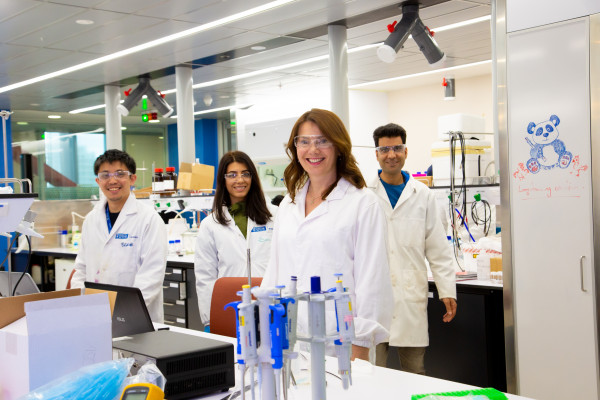Biodegradable polymer electronics: a new frontier

Professor Jadranka Travas-Sejdic, University of Auckland, will develop polymer based materials for use as transient electronics that breakdown into environmentally friendly by-products. These electronics have the potential to be used in temporary medical implants that don’t require removal
Transient electronics are an emerging class of devices that are intentionally designed to breakdown into environmentally friendly by-products. This degradation happens in a programmable way and after the device has had a well-defined lifetime of operation. Since no harmful by-products are released, the devices can be used in the human body as a monitoring, diagnostic, or therapeutic tool. For example, an electronic component could be temporarily implanted in a patient and then dissolve safely on its own without the need to remove it. Transient electronics can also address the ecological challenges associated with our electronics-intense society and the global shift towards a circular economy. While significant advancements in electronic materials have recently been made using metal-based, semi-conductive materials, the development of transient polymer electronics is an exciting new frontier.

Professor Jadranka Travas-Sejdic with Associate Investigator Dr Eddie Chan on the far left and other members of the research team. Photo supplied
Polymer-based electronics may provide electronic conductivity, biocompatibility, desirable mechanical properties and controlled degradation, all in one macromolecule. Yet, the development of materials that are stretchable enough for medical use but crystalline enough for electronic performance remains a challenge. Professor Travas-Sejdic has been awarded a Marsden Fund grant to develop a novel approach to transient organic electronic materials using polymers. With Dr Eddie Chan, the Associate Investigator, and her research team, she aims to make innovative materials by grafting conducting polymers onto degradable, stretchable, natural biopolymer backbones to realise well-defined semi-crystalline and transient structures. Her team will explore the use of chitosan– sourced from seafood waste; collagen– the most abundant protein in mammals; and poly(g-glutamic acid)– derived from bacteria, as the most appropriate backbone material.
With these polymer based materials, Professor Travas-Sejdic will establish a new class of transient electronics that are especially suited for medical applications.
